Column 325: Chasing Conor: A look back on 13 years of interviews
by Tim McMahan, Lazy-i.com
We were driving downtown in my Mini Cooper this past weekend when a Bright Eyes song came on the iPod connected to my car stereo. I leaned forward and skipped past it. Teresa shot me a glance, and I said, “I’m mad at him right now.”
I’d been going back and forth with Bright Eyes’ publicist, Press Here Publicity, since last December trying to line up an interview with Conor Oberst in conjunction with Bright Eyes’ latest album, The People’s Key, which came out on Saddle Creek Records in February. At the time, Oberst was talking to any member of the national press that was willing to listen. Interviews appeared in all the usual magazines, Rolling Stone, SPIN, etc. It wasn’t until February that I got a response: “Conor generally doesn’t do much press while on tour, so it’s safe to say he will likely wait for a local date” — i.e., until the S.S. Bright Eyes docked in Omaha or thereabouts, in this case, the Westfair Amphitheater June 4.
I’ve interviewed Oberst upon the release of every full-length Bright Eyes album since 1998’s Letting Off the Happiness, his first record after leaving seminal local-that-became-national emo band Commander Venus. CV was one of those bands that I remember playing at places like the Capitol Bar and Grill, a shrieking trainwreck of a band that thrived on its unique energy. We’re all still waiting for the inevitable Commander Venus reunion, which I’ve been told will never happen.
Anyway, it was Dave Sink, who ran the Antiquarium Record Store in the Old Market, who suggested that I interview Oberst. It seemed like Conor and his ever-changing cast of sidemen played at a different club every weekend back then, to crowds that numbered in the 30s. Some nights it was just Oberst struggling through the set with his acoustic guitar, a twitching mess of angst constantly pushing his eyeglasses back up his nose.
That first interview took place in an apartment that would go by a dozen names, including Gunboat and The Jerk Store. Always a gracious interview, Oberst, then 18, recalled his musical origins, Commander Venus and its breakup, and took me right up to the present.
“The hardest part is the touring — setting up the gigs and affording it,” Oberst said back then. “I’d love to make a living playing music, but the easiest way to do that is to compromise what you’re doing. You cease caring about what you’re doing and caring more about what people think about what you’re doing. All’s I want is to make enough money to live – which is having an apartment and a shitty car. I don’t need a house, but it would be nice.”
Fevers and Mirrors came out two years later. By then, Bright Eyes had emerged as a national force. The first “young Dylan” comparisons began popping up. The album was threatening to break the CMJ top-20 — a big deal. Road trips included whirlwind tours of Japan. Our second interview took place on an upper-floor balcony area of his parents’ midtown home. He was already getting annoyed by fame, or so he said.
“But then there’s all these drawbacks you never thought of, like the press and the whole idea of so many people knowing about you and what you do and your opinions,” Oberst said during the interview. “And then there’s the money people. It can get bad. It comes down to making smart decisions and playing with people who seem honest and good, and trying to ignore the rest of the shit. Some people succeed with that and a lot go crazy and decide to go hide in a cabin. Now I can understand why.”
Two years later, Saddle Creek released Lifted, or The Story Is in the Soil, Keep Your Ear to the Ground, considered by many (including myself) to be his masterwork. We met over coffee at Caffeine Dreams. Oberst seemed nervous and out of sorts the whole time. He talked about his guilt toward long-time fans.
“It gets hard,” he said during the interview. “You feel like an asshole for forgetting people over time. For the most part, everyone understands. It was way easier in the past. You could roll into a town and play for 100 kids and ask for a place to stay and get taken to someone’s house and party. Now it’s not like that. There’s more of a barrier between us and the audience. I want to make relationships with people, but I don’t even have time to be good friends with my actual friends.”
By the time of our 2004 interview for I’m Wide Awake, It’s Morning and Digital Ash in a Digital Urn, the writing was on the wall. Oberst had moved to New York City and was hob-knobbing with the likes of Springsteen and Michael Stipe. Despite being a phoner, he was candid and open.
“Music is still the main thing. I feel the best when I’m playing and recording,” he said during the interview. “The rest of the world just kind of washes away, and I feel good and safe and happy. That’s what I do it for. The rest of it… it gets crazy and sometimes unpleasant; exhilarating and sometimes terrifying. But that’s what living is — all that stuff at once, and you have to do the best you can with it.”
Our 2007 interview for Cassadaga took place in an empty Saddle Creek Bar late in the afternoon. Along for the ride was Neva Dinova frontman Jake Bellows. Oberst never seemed more relaxed. Having recently moved back to Omaha, it was as if he’d come to some sort of peace with his career.
That was the last time I spoke to Oberst. The final response to my interview requests came a couple weeks ago: “Conor is taking a break between legs of the Bright Eyes tour and is not doing any promo,” the e-mail said. “Unfortunately, we won’t be able to accommodate your request this time around.”
So I guess this is where the story ends, for now.
BTW, tix are still available for Saturday’s Westfair Amphitheater show, which in addition to Bright Eyes includes Jenny & Johnny, David Bazan, and Con Dios. They’re $25, and available online here
. Show starts at 5:30 p.m.

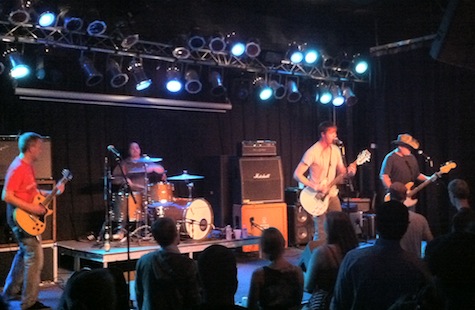
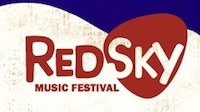
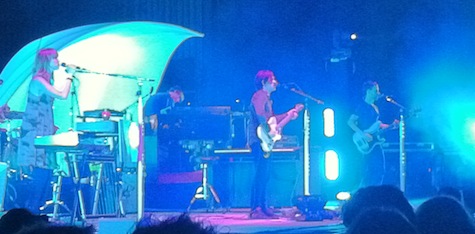
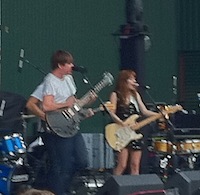

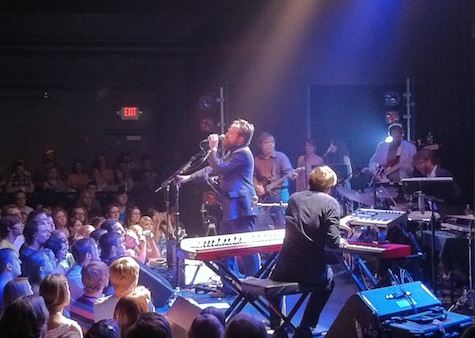
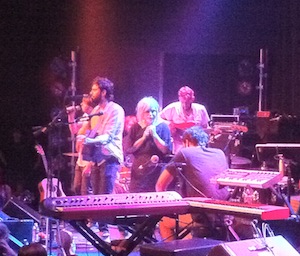
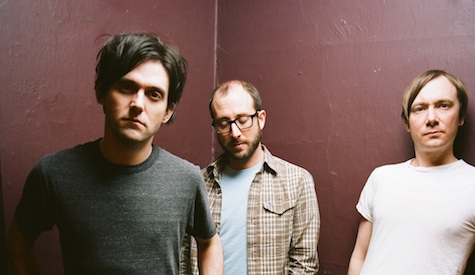
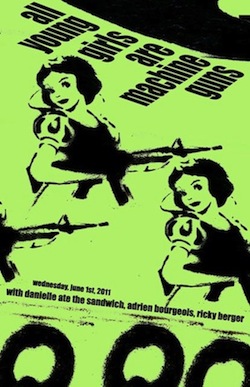
Recent Comments